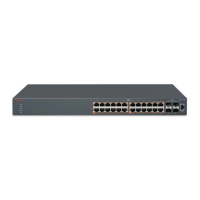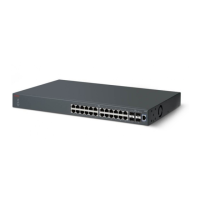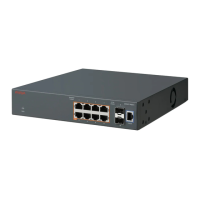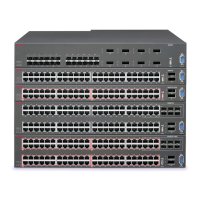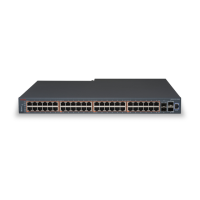Variable Value
logging none | access | failures | all Specifies what types of events you want to save in
the event log:
• All — Saves all access events in the log:
- Telnet connect — indicates the IP address and
access mode of a Telnet session
- Telnet disconnect — indicates the IP address of
the remote host and the access mode, due to
either a log off or inactivity.
- Failed Telnet connection attempts — indicates
the IP address of the remote host that is not on
the list of allowed addresses, or indicates the IP
address of the remote host that did not supply
the correct password.
• none — No Telnet events are saved in the event
log.
• access — Connect and disconnect events are
saved in the event log.
• failure — Only failed Telnet connection attempts
are saved in the event log.
source-ip
<1–10> <A.B.C.D>[mask <A.B.C.D>] Specifies up to 10 IP address from which
connections are allowed. Enter the IP address either
as an integer or dotted-decimal notation (A.B.C.D in
the format XXX.XXX.XXX.XXX).
Specifies the subnet mask from which connections
are allowed; enter the IP mask in dotted-decimal
notation (A.B.C.D in the format XXX.XXX.XXX.XXX)
Important:
These are the same source IP addresses as in
the IP Manager list. For more information about
the IP Manager list, see Configuring Security on
Avaya Ethernet Routing Switch 3500 Series,
NN47203–504.
no telnet-access [source-ip [<1–10>]] Disables the Telnet connection. When you do not
use the optional parameter, the source-up list is
cleared, meaning that the 1st index is set to
0.0.0.0/0.0.0.0 and the 2nd to 10th indexes are set to
255.255.255.255/255.255.255.255. When you do
specify a source-ip value, the specified pair is set to
255.255.255.255/255.255.255.255.
Table continues…
Configuring Telnet
48 Getting Started with Avaya ERS 3500 Series July 2015
Comments on this document? infodev@avaya.com

